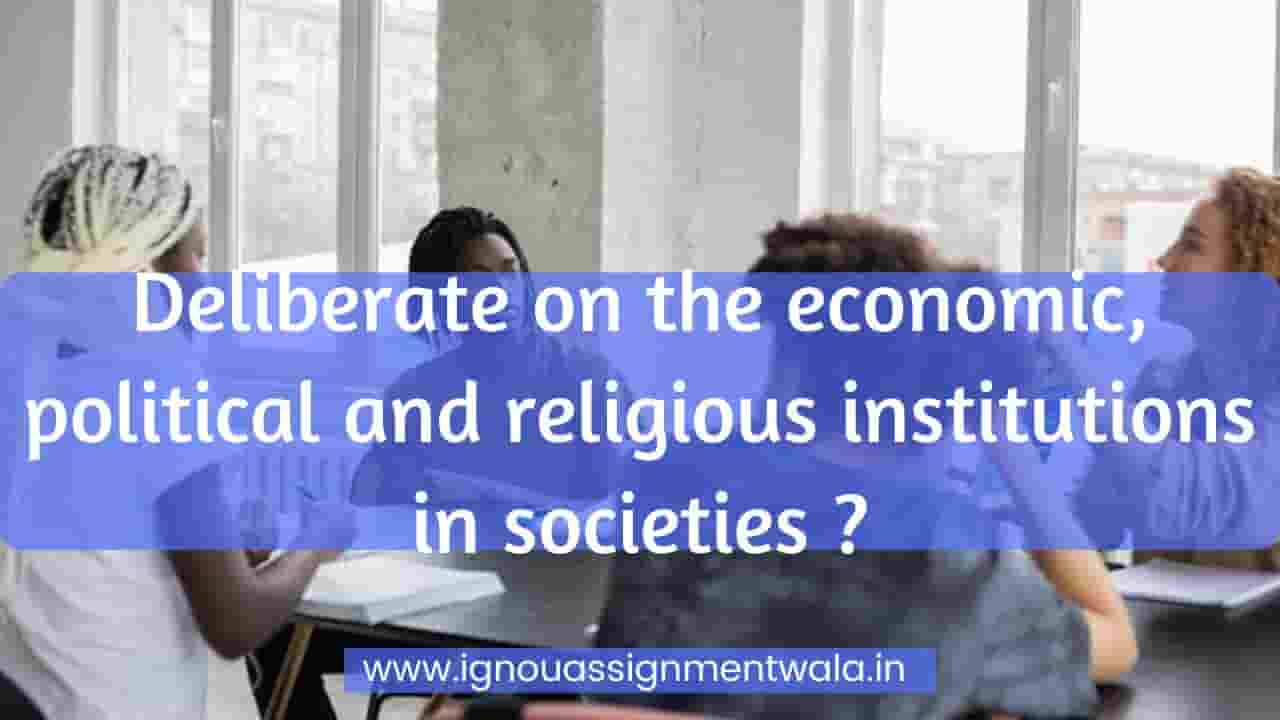Economic, political, and religious institutions are fundamental components of societies and play crucial roles in shaping the social, cultural, and economic fabric of a community. Let’s examine each of these institutions in turn:
1. Economic Institutions:
Economic institutions are structures and systems that govern the production, distribution, and consumption of goods and services within a society. They can vary significantly across different societies, depending on factors such as historical development, cultural norms, and political ideologies. Key aspects of economic institutions include:
a. Property Rights: The legal framework that defines ownership and control over resources and assets. Secure property rights are essential for encouraging investment, innovation, and economic growth.
b. Market Systems: The mechanism through which goods and services are exchanged. Markets can be free and competitive, controlled by the state (planned economies), or mixed, combining elements of both.
c. Financial Systems: Institutions that facilitate the allocation of capital, such as banks, stock markets, and venture capital firms. These systems support investment and entrepreneurship.
d. Labor Market: The system through which individuals find employment and employers hire workers. Labor regulations, minimum wage laws, and social safety nets influence the dynamics of the labor market.
e. Trade and Globalization: The extent to which a society engages in international trade and the integration of its economy with the global market.
Read more : eGyanKosh: Semester-I
Read more : HOW TO DOWNLOAD IGNOU STUDY MATERIAL ? – IGNOU Assignment Wala
2. Political Institutions:
Political institutions are structures and systems that organize and regulate power within a society. They define the processes through which decisions are made and policies are implemented. Key aspects of political institutions include:
a. Government Structure: The organization of power, including the division of authority between different branches of government (executive, legislative, and judicial).
b. Electoral Systems: The methods through which representatives are elected, including proportional representation, first-past-the-post, and others.
c. Rule of Law: The principle that all individuals and institutions are subject to and accountable to the law, ensuring fairness and justice.
d. Political Parties: Organizations that represent different ideologies and compete for political power through elections.
e. Public Policy: The decisions and actions taken by governments to address societal issues, such as education, healthcare, infrastructure, and social welfare.
3. Religious Institutions:
Religious institutions are organizations and systems that facilitate the practice and dissemination of religious beliefs and traditions within a society. Religion often plays a significant role in shaping culture, values, and social norms. Key aspects of religious institutions include:
a. Religious Organizations: Various structures like churches, mosques, temples, synagogues, and other places of worship that bring believers together.
b. Religious Leaders: Clergy, priests, imams, rabbis, or other figures who hold positions of authority and guide religious communities.
c. Rituals and Traditions: Practices and ceremonies that are central to religious observance and often mark important life events and festivals.
d. Moral and Ethical Guidance: Religions often provide frameworks for ethical behavior and guide believers in their daily lives.
e. Influence on Society: In some societies, religious institutions can influence governance, law, and social norms, impacting areas like education, family structure, and gender roles.
It’s important to note that these institutions are interrelated and can influence each other. For example, economic policies can be shaped by political ideologies, which may, in turn, be influenced by religious beliefs or vice versa. The dynamics between these institutions are complex and can have profound effects on the development and functioning of societies.



